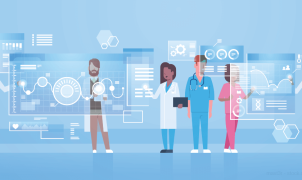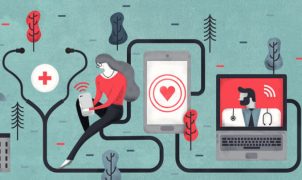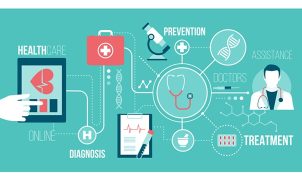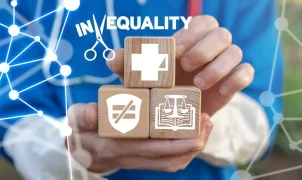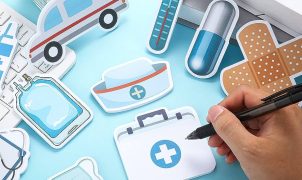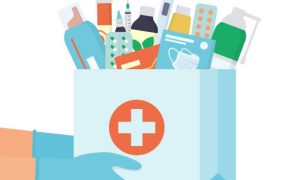Vital healthcare essentials are the foundation of maintaining a healthy and well-functioning life. This essay delves into the importance of these essentials, their role in preventing and addressing health concerns, and strategies for incorporating them into daily routines.
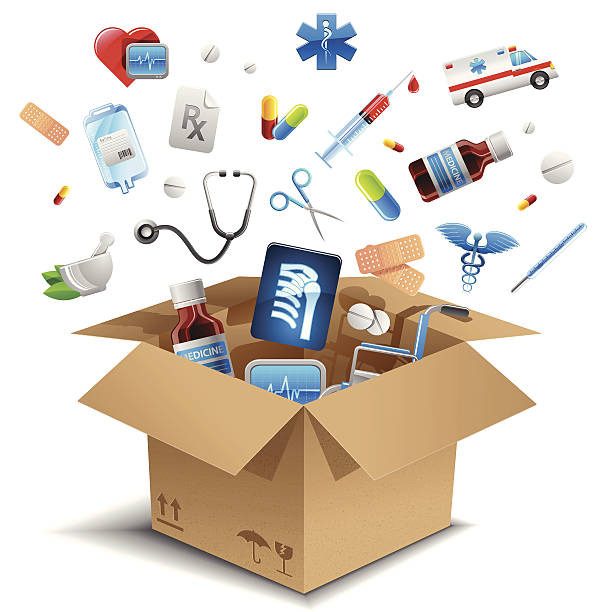
1. The Importance of Vital Healthcare Essentials
Vital healthcare essentials encompass a range of products and tools that are crucial for promoting well-being and addressing health needs. These essentials include medications, first aid supplies, hygiene products, and items for monitoring health parameters.
2. Preventive Measures and Early Intervention
One of the key aspects of vital healthcare essentials is their role in preventive care and early intervention. Regular use of essential medications, vitamins, and supplements can help prevent the onset of various health issues. Additionally, having first aid supplies readily available empowers individuals to address minor injuries promptly, preventing complications.
3. Supporting Daily Health Routines
Vital healthcare essentials seamlessly integrate into daily health routines. Toothbrushes, dental floss, and mouthwash are essential for oral health maintenance. Regular use of these items can prevent dental problems and contribute to overall well-being.
4. Nurturing Self-Care Practices
Incorporating vital healthcare essentials into daily routines nurtures self-care practices. Taking time to address health needs demonstrates a commitment to one’s own well-being, fostering a positive relationship with the body and mind.
Building a Comprehensive Toolkit of Vital Healthcare Essentials
Creating a toolkit of vital healthcare essentials ensures preparedness for various health scenarios. This essay explores the components of such a toolkit, the role of customization, and the benefits of being equipped with these essentials.
1. Customization for Individual Needs
Each individual’s health needs are unique, and a well-equipped toolkit should reflect that. Consider factors such as age, allergies, chronic conditions, and family composition when assembling your toolkit. This customization ensures that you have the necessary items tailored to your health requirements.
2. Components of a Comprehensive Toolkit
A comprehensive toolkit of vital healthcare essentials includes medications, wound care supplies, hygiene products, thermometers, and monitoring devices. Adhesive bandages, antiseptic solutions, and gloves are crucial for addressing minor injuries and maintaining hygiene.
3. Preparedness for Different Scenarios
Life is unpredictable, and being prepared for various health scenarios is essential. Having essential medications, pain relievers, and first aid supplies readily available can make a significant difference in managing unexpected health issues, whether at home, during travel, or in emergencies.
Empowering Communities through Access to Vital Healthcare Essentials
Ensuring access to vital healthcare essentials is a crucial step in promoting community health. This essay discusses the global significance of equitable access, community initiatives, and the positive impact of making these essentials available to all.

1. Health Equity and Access
In many regions, limited access to vital healthcare essentials remains a challenge. Disparities in access can lead to preventable health issues and exacerbate existing health inequalities. Efforts to provide these essentials to marginalized communities contribute to improving overall health outcomes.
2. Community Health Initiatives
Numerous community health initiatives aim to provide vital healthcare essentials to underserved populations. Mobile clinics, health education programs, and collaborations with non-governmental organizations play a pivotal role in ensuring that everyone has access to the essentials they need.
3. Disaster Preparedness and Relief
Vital healthcare essentials are of paramount importance during disasters and emergencies. Whether it’s natural disasters or public health crises, having well-stocked medical kits can save lives and alleviate suffering. Distributing these kits in disaster-prone areas contributes to effective disaster preparedness and relief efforts.
Vital healthcare essentials are the cornerstone of a healthy life. Their role in preventive care, daily routines, and community health initiatives underscores their significance. By understanding their importance, customizing toolkits, and advocating for equitable access, we can collectively enhance health outcomes and empower individuals and communities to lead healthier lives.
Navigating Life’s Challenges with Vital Healthcare Essentials
In the journey of life, challenges and uncertainties are inevitable. However, with a well-prepared arsenal of vital healthcare essentials, individuals can navigate these challenges with greater resilience. This essay delves deeper into how these essentials act as a safety net, their role in promoting mental well-being, and strategies for integrating them into various life situations.
1. A Safety Net in Health Emergencies
Life can take unexpected turns, often presenting health emergencies that require immediate attention. Having a collection of vital healthcare essentials readily available can serve as a safety net during such moments. From wound care to managing common ailments, these essentials empower individuals to address health concerns promptly, reducing the impact of emergencies.
2. Promoting Mental Well-Being
Physical health and mental well-being are intertwined. When individuals have easy access to vital healthcare essentials, they experience a sense of security that positively impacts their mental state. This security contributes to reduced anxiety about health issues, allowing individuals to focus on other aspects of their lives without constant worry.
3. Essentials for Different Life Stages
Life is a journey filled with various stages, each with its unique health considerations. Vital healthcare essentials evolve with these stages. For young parents, essentials such as baby care products, thermometers, and first aid supplies become indispensable tools for ensuring the well-being of their children. Similarly, as individuals age, medication management tools, blood pressure monitors, and mobility aids become crucial in maintaining health and independence.
4. Integrating Essentials into Travel
Traveling is a part of modern life, and having access to vital healthcare essentials while on the move is essential. From maintaining hygiene during long flights to addressing minor health issues during trips, a well-prepared travel medical kit can enhance the overall travel experience. Adhesive bandages, pain relievers, motion sickness medication, and sanitizer are a few examples of essentials that can be easily packed.
The Economic Impact of Vital Healthcare Essentials
The role of vital healthcare essentials extends beyond individual well-being to influence economic aspects. This essay explores the economic significance of these essentials, their contribution to productivity, healthcare costs, and the potential savings associated with preventive care.

1. Boosting Workplace Productivity
A healthy workforce is a productive workforce. When individuals have access to vital healthcare essentials, they are better equipped to manage minor health issues and illnesses promptly. This reduces sick days, absenteeism, and the negative impact of health-related interruptions on workplace productivity.
2. Preventive Care and Healthcare Costs
Prevention is not only better than cure; it’s also more cost-effective. Vital healthcare essentials play a crucial role in preventive care, enabling individuals to manage health concerns before they escalate. This proactive approach reduces the need for costly medical interventions and hospitalizations, thereby lowering overall healthcare expenses.
3. Empowering Individuals with Information
Equipped with essential healthcare tools, individuals are more likely to take charge of their health. This empowerment includes making informed decisions about when to seek medical attention and when self-care is appropriate. As a result, unnecessary visits to healthcare facilities are minimized, alleviating the burden on healthcare systems.
4. Fostering a Culture of Health
A society that values and prioritizes health is more likely to thrive economically. When individuals have access to vital healthcare essentials, they are more likely to engage in healthy behaviors and practices. This cultural shift towards health-consciousness reduces the strain on healthcare systems, leading to improved overall economic stability.
Global Access to Vital Healthcare Essentials: A Shared Responsibility
Access to vital healthcare essentials is a global issue that requires collective action. This essay examines the global efforts to improve access, the role of governments, non-governmental organizations, and the positive impact of addressing this issue on public health.
1. Bridging Global Health Disparities
Disparities in access to vital healthcare essentials persist on a global scale. While some regions have abundant access, others struggle to provide these essentials to their populations. Bridging these disparities is essential for achieving equitable health outcomes and addressing health inequalities.
2. Government and NGO Collaborations
Governments and non-governmental organizations (NGOs) play a critical role in ensuring access to vital healthcare essentials. Government initiatives, such as subsidized healthcare programs and distribution of essential supplies, can improve accessibility. NGOs often work in partnership with governments to reach underserved populations and provide much-needed healthcare essentials.
3. Health Diplomacy and International Cooperation
Global health challenges require international cooperation. Health diplomacy efforts focus on addressing health issues collectively, regardless of geographical boundaries. Collaborative initiatives can involve sharing resources, knowledge, and best practices for ensuring access to essential healthcare supplies.
4. Empowering Local Communities
Improving access to vital healthcare essentials involves empowering local communities. Community health education, awareness campaigns, and training programs can teach individuals how to use these essentials effectively and encourage proactive health management.
In conclusion, the significance of vital healthcare essentials extends beyond personal well-being to encompass economic stability and global health equity. By understanding their role in emergencies, workplace productivity, and the broader economy, individuals and societies can harness the benefits of these essentials. Additionally, addressing the global issue of access requires the collaboration of governments, NGOs, and international partners to ensure that everyone, regardless of their circumstances, can access the healthcare essentials they need.


